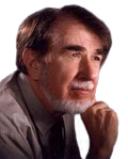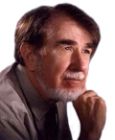
Philosophy
Getting Started
20th century psychology failed to keep pace with other sciences
Posted December 18, 2010
This is my first venture as a blogger. I should introduce myself, describe my background, and tell why I am doing this.
Despite brilliant focal areas of research-I call them kiosks--psychology has fallen behind the other sciences during the 20th century. Without structural change I would expect it to do no better in the 21st century. I come to this conclusion not as a credentialed philosopher of science but instead as a researcher "in the trenches" during my career. It is therefore legitimate to ask if such a person has anything worth saying about the structure and future of psychology. Therein, I hope, lies the basis for a useful dialogue and debate about my dim proposition. These blog pieces give me an opportunity to make my case. They also give me the opportunity to hear and share feedback from other perspectives. If each of these goals can be realized, then I have served a purpose, both for myself and for others. Maybe even for psychology.
My orientation as a journeyman researcher cannot be understated. We think differently. A few years ago I attended a lecture series on William James and the renewed interest in his pragmatism. The audience, except for me, consisted of humanities people--from history, English, philosophy, and the like. I, in contrast, was a research clinical psychologist. I had never seen the business of scholarly inquiry so clearly separated. To argue toward one idea and to discard others led the group to more and more divergent sources of literature. The wider the range of decent writings, the more successfully advanced was the proposition.
In contrast, as I entered the conversation, my focus was upon the supporting and contradicting evidence voiced by James and others that could narrow the discussion down to single testable hypotheses. In this way research might settle the issue. Other audience members were often annoyed with me. I was not playing by their rules. And I also was sometimes annoyed. They retained fascination with James' original construct of consciousness, and I had trouble seeing how they could reduce it to observation-based criteria. When I noted that James publicly rejected the construct of consciousness as a useless in psychology in 1907 shortly before his death, my information was ignored. A body of writings had already accommodated to the notion, and that dominated the attention.
Although I left these lectures as a "black sheep," I was nevertheless convinced that the divergent and convergent methods were both important to advance knowledge. They are mutually contributive to each other, in spite of the scorn the respective parties often had for the other.
I have just finished a book BEING HUMAN: HUMAN BEING: MANIFESTO FOR A NEW PSYCHOLGOY. In it I have discussed various weaknesses and flaws of theoretical substructure that block advancement of knowledge in psychology. Some people have the view that advances in psychology must await new knowledge in the brain sciences. NOT! A worthy aspiration is that psychology can become so advanced that it can point to where brain sciences and the economic and political sciences should look for their next discoveries.
Psychology is yet in the dark ages and its main contribution is yet to come.
I have been fortunate in my career to have a broad sampling of psychologists who have left footprints on the discipline. I have been told of many interesting and humorous events that have never been set down in print. They have also provided me with a picture of the evolution of the field. This began when, as a sophomore and president of the Psi Chi psychology honorary at Indiana University, I invited William Lowe Bryan to speak. After working with Ebbinghaus and Helmholtz in Berlin he returned to America to be a charter member of the American Psychological Association in 1892 and then its President in 1903. He researched plateaus on the learning curve before becoming President of Indiana University. In the same sophomore year I became an anesthetist and assistant surgeon in the dog lab of W. N. Kellogg, not to mention living in the lab and being dog caretaker. My fellow assistant and roommate was Randall Chambers, who became the first space psychologist as he studied the first class of NASA astronauts who traversed outer space. Often over an anesthetized dog I discussed with Kellogg his experiences and the application of psychology to his role as a fighter pilot in World War I. I was already aware of his study wherein he raised his infant son Don with a chimpanzee.
Before and during college I knew Don as a fellow Boy Scout. When I left Scouting for summer Air ROTC camp, Don took my place as Waterfront Director of the local regional summer Scout camp at Bloomington. I continued to live in and manage the lab, as the research focus shifted from dog brains to the conditioning of paramecia. In nearby buildings my psychology colleagues were becoming assistants in other labs. Hermann Mueller was getting the Nobel Prize for radiation effects upon genetics in fruit flies. Alfred Kinsey was breaking the barriers in sex research on human males and females. Hermann Wells had been appointed by Truman to plan the postwar educational program in Germany. In so doing, he founded the Free University of Berlin.
Moving on to Ohio State for graduate school, two separate and parallel projects were underway in developing theory and research in personality and psychotherapy. George A. Kelly was developing personal construct theory. Social learning theory was being developed by Julian B. Rotter. Both had their graduate student heavily involved in the development. I was determined to be exposed to both, so I sought an MA degree with one group and a PhD degree with the other--albeit I was often viewed as a spy from the alternate group. The Ohio State experience was capped off by becoming Assistant Instructor and Clinic Coordinator, thus being in charge of intake of all clients and setting up the cases for the respective faculty to supervise clinical work among the students. Sitting in on case supervision was especially informative. The tradition of the Ohio State Psychology Clinic was brought forward by my seeing cases Carl Rogers had earlier seen and sitting in Henry Goddard's rocking chair during clinical case meetings.
After graduate school, major influences came from David Shakow and Joe Zubin in schizophrenia research and from Nick Hobbs in developmental research and ethical problems. My own personal skills grew to include eyelid conditioning, tachistoscopic study, hyperactivity and distractibility measures, multivariate methods to refine psychometric tests, psychophysiological batteries, and Kelly rep grids. Having had over 50 PhD dissertations and several MA theses to supervise, I continued to be exposed to new and fresh ideas. It is from this perspective that my argument for the 20th century failing of psychology is based.

